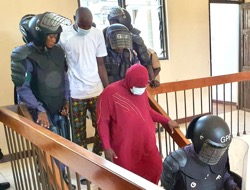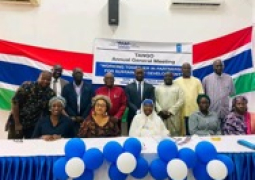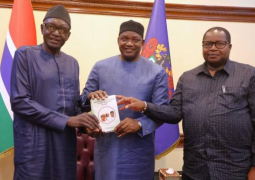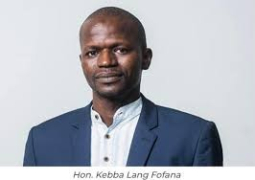
In his ruling, Justice Jaiteh ordered the Director General of Mile 2 Central Prisons to provide medical service and attention to the applicant “when it is necessary and expedient” to do so.
It would be recalled that the applicant filed an affidavit of 15 paragraphs and an additional affidavit of 9 paragraphs while the respondent opposed the application and filed a 13-paragraph affidavit in opposition.
Amie Bojang’s counsel, lawyer Mboge, argued on the additional affidavit in support which disclosed that the applicant had been confirmed to be an asthmatic patient and was suffering from hypertension.
He further argued that, looking at the nature of Mile 2 Central Prison, the applicant was exposed to a greater health risk and the prison might worsen the applicant's health condition, adding that the presumption of innocence lies in favour of the applicant thus, section 24(3)(a) of the 1997 Constitution states that an accused charged with an offence is innocent until proven guilty.
Subsequently, Justice Jaiteh said the law is very clear on the point that the matters to be taken into consideration on whether or not to grant bail are: the nature of the charge, the severity of the punishment, the quality of the evidence available, the likelihood of the accused jumping bail or interfering with witnesses, the criminal record of the accused if any and the likelihood of a repetition of the offence if granted bail.
Justice Jaiteh further cited section 99(1) of the Criminal Procedure Code, which undoubtedly gives the court the discretion to grant bail to any person other than a person accused of an offence punishable with death or imprisonment for life, adding that the discretion must, however, be exercised judiciously having due regards to the facts and circumstances of the case and in accordance with any statutory criteria for granting bail.
He said the punishment for accessory after the fact to murder contrary to section 202 of the Criminal Code is life imprisonment.
“I have placed the averments of the applicant side by side with the averments in the affidavit in opposition and it is my view that on a balance of probabilities, the applicant has not established special or exceptional circumstances before the court to be considered in grant of bail,” Justice Jaiteh said.





